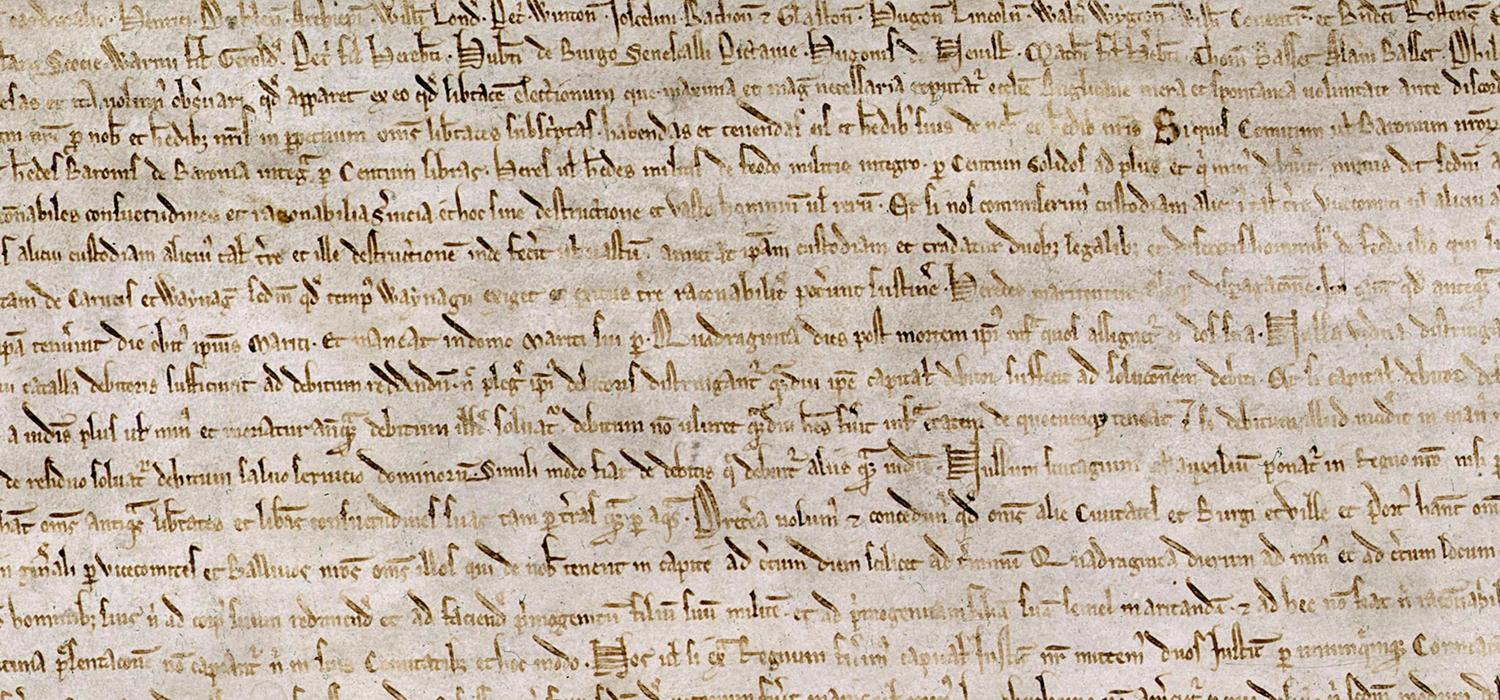
Sept. 10, 2021
What We Are Learning This Week

September 13, 2021 in POLI 342 Law and Politics
Dr. Maureen Hiebert is exploring how different legal theories conceptualize what constitutes “valid’ law & also examining different ways of thinking about the evolution & practice of the rule of law in Western democracies.
Can you tell us a little more about this week’s topic?
Our exploration of the nature of law begins with natural law in the pre-modern era and the understanding that for laws to be “real” they must be underpinned by a conception of morality. Then we move on to the now dominant view of law, legal positivism, in which the validity of law is indexed to its creation via proper authority not its normative content. We then examine the critiques of critical legal/races scholars, who assert that Western laws and legal systems are the handmaidens of racism, patriarchy, xenophobia, and homophobia. Having established how we can think about what law is, we go on to trace the historical evolution of the “rule of law, not of men” from the Magna Carta in Medieval England to contemporary debates over what constitutes the rule of law in liberal democracies

What else do you cover in your course?
In POLI 342 we delve into the complex relationship between law and politics in democracies, authoritarian regimes, and the international system. After an initial discussion of the two dominant legal systems in most contemporary states – the common law and civil legal traditions — and the nature of law and the rule of law, we turn to democratic constitutionalism (what constitutions do and why they are created), the practice of judicial review by courts under constitutional documents, how judicial review affects the relationship between legislatures, executives, and the courts, and how all of this influences judicial independent and selection. Embracing recent literature on so-called “rule by law” in authoritarian regimes, we look at how constitutions and courts are used by some authoritarian polities to gain legitimacy and realize regime goals. Finally, we turn our attention to the sources of international law (IL) and the role IL does and does not play in international politics.
How did you come to develop this course?
I developed this course as a way of laying the foundation for the study of law and politics in a number of different subfields and courses in our department at the undergraduate level. The first part of the course on democratic law and politics focuses on Canada in comparative perspective, complementing our courses in Canadian and comparative politics. The material on law and politics in authoritarian regimes is also closely linked to comparative politics since it picks up a relatively new trend in the academic literature on the comparative study of how constitutions, courts, legislatures, and other institutions function in authoritarian states. Finally, I wanted to provide students with an introduction to international law in preparation for courses like POLI 483 International Law and POLI 543 Law and Armed Conflict as well as provide a companion to our other international relations courses.
Finally, what other courses would you recommend for students interested this topic?
For students wishing to get a complete picture of law and politics in Canada I very strongly recommend they take INDG 343 Indigenous Law in Canada. Those who want to get into the nitty gritty of Canadian constitutional law and the Charter of Rights and Freedoms could consider first and second-year courses in the Law and Society Program. Courses directly relevant to students interested in international relations are POLI 483 International Law and POLI 543 Law and Armed Conflict.
Our Thanks to Dr. Maureen Hiebert for sharing your course with us!
Follow Dr. Hiebert on Twitter @_mhiebert
